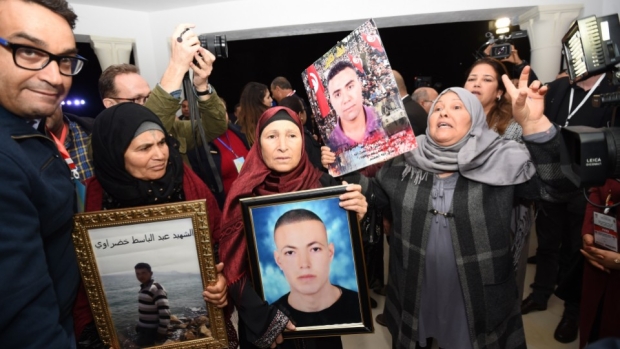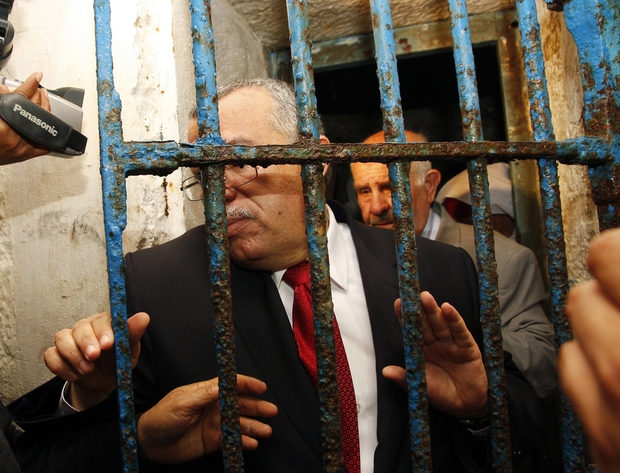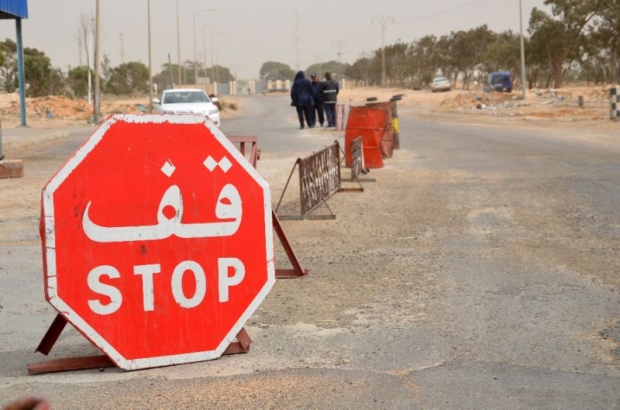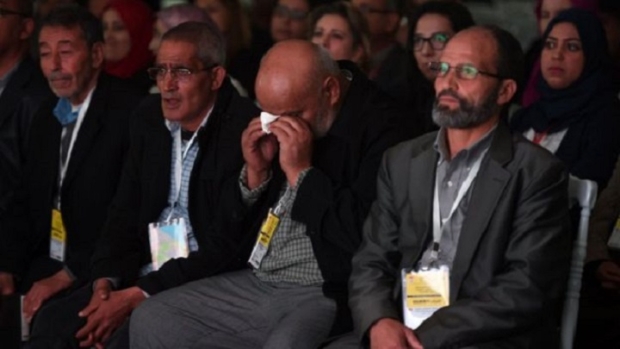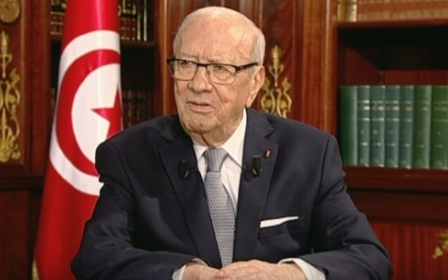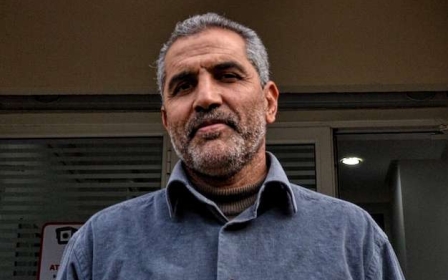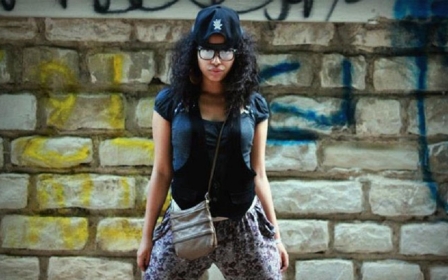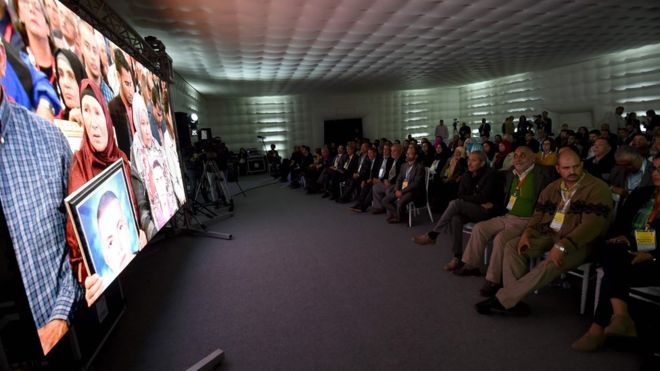
Jailed, tortured and forced into exile: In Tunisia, now we have our moment of truth
Earlier this month, we witnessed a monumental event in Tunisian history: the public testimonies of the victims of torture, rape and police brutality by the state since our independence in 1956 until the ousting of Ben Ali in 2011.
After 60 years of abuse, Tunisia finally faced its demons as the Truth and Dignity Commission gave platform to some of the 62,000 victims who came forward about their abuse.
At first, as I sat watching survivors of torture share their experiences on live television. I was just a spectator along with the audience and the rest of the world listening through live streams to the voices of survivors tremble with pain.
But soon, I was deeply hit and suddenly felt the weight I bore for 23 long years before the 2011 revolution.
I remembered that these were my experiences too.
Lingering trauma
Airing the public testimonies on 17 November was especially poignant for my family as on that exact same day in 1987, my husband was arrested and imprisoned for 18 months by Ben Ali for his role in the opposition movement following Bel Ali's coup d’etat.
Torture victims mentioned the infamous ‘roast chicken’ technique whereby they suspend you around a stick, tying your arms and legs, beating you as you rotate
During the hearings, torture victims mentioned the infamous "roast chicken" technique whereby they suspend you around a stick, tying your arms and legs, beating you as you rotate. They used this technique on my husband, torturing him consecutively for 17 days.
Although he has since recovered physically from his abuse, it is the psychological trauma that haunts him after almost 30 years.
READ: Torture and Tunisia: Survivors accuse persecutors on live TV
However, this was not the worst-case scenario: the mother and brother of Faycel Buraket discussed his unspeakable torture and subsequent cover up of his murder in 1991 by the police.
My husband and I knew Faycel and his family very well as we monitored his case closely while in exile for Amnesty International and other human rights groups.
It was common for the police to produce false autopsies so as to conceal the reality of what victims endured. His brother, Nabil, who was also tortured by the state, shared the disturbing moment he saw Faycel’s body for the first time. Faycel was covered in blood, found bleeding from his genitals and rectum. He died from his wounds.
The cover up of torture, murder and abduction by the state was a continuous cycle that has plagued the victims of Tunisia for so long.
Defying censorship
The state wanted to keep us deaf and blind to the realities of their violence and abuse. As much as they tried to lie to limit us from communicating, I found a way to defy their censorship.
While visiting my husband in prison to deliver clothes and food, I would write him letters on small napkins and discretely iron them into the lining of his trousers.
While he was in prison, I became the sole breadwinner, the provider for my family
I kept him updated on other activists who were arrested, had fled or being harassed, as well as what new oppressive tactics the state was using and what propaganda it published through the media.
My role as a messenger was extremely important under a dictatorial regime that used heavy censorship to control our freedom. My husband would write back on those same napkins and I would deliver information to other activists on the outside.
But this wasn’t my only role. While he was in prison, I became the sole breadwinner, the provider for my family. Keeping a sense of normalcy for my children was extremely difficult as they all witnessed the moment their father was arrested at gunpoint in our home.
I faced many obstacles placed in front of me by the state. I was a woman who wore a hijab in the 1980s when it was illegal to wear in the work place, schools and even hospitals.
I was struggling to express my religious freedom under an intensely repressive regime that, with the help of Habib Bourguiba, enforced regurgitated values from our former French colonisers.
I was a teacher by profession and received a lot of verbal abuse from staff about how I chose to dress. As I watched the witnesses, I saw this was also a common experience for the women who shared their own stories.
From jail to jail, town to town
During their testimonies, I was particularly moved when watching a mother named Fatima whose tears were streaming down her face as she shared the story of the torture and murder of her son, Anis Alfarhani, by the police.
“I know to God he’s a martyr, to me he’s a hero, but I want it written down in history,” Fatima cried out.
'I know to God he’s a martyr, to me he’s a hero, but I want it written down in history'
- Fatima, mother of Anis Alfarhani who was tortured and murdered
The regime went to great lengths to cover up its abuse and tarnish the reputation of its victims. Families were burdened with being unable to seek closure, as they would suffer not knowing what really happened to their loved ones.
Fatima also reminded me of my own mother’s suffering during my exile but more significantly during my brother’s imprisonment in 1991 by the regime.
My mother, the kind who couldn’t read nor write, who at the time in her 50 or so years of life hadn’t left her small village, travelled far and wide all over Tunisia when they transferred my brother from jail to jail without telling her.
Moving prisoners around the country to remote prisons without telling their families was just one of the many shameful tactics used by the regime to test our resilience in supporting our loved ones.
But my mother never gave up on him and followed him from town to town every week, even when the prison guards would abuse her and take off her veil or refuse to deliver her son the food she prepared for him at dawn.
My brother, Belhassan, spent five years in jail because of my husband’s political activities.
His only crime was being related to me.
As I carried on watching Fatima, I asked myself, how did my mother survive those five years?
Hearing the harassment that families of the victims suffered forced me to reflect on my life during the final year before I fled the country.
Escape and exile
My husband at this point was already exiled in the UK. I vividly remember finding our front door wide open with each waking day. The police harassed my children and I for what felt like an eternity. They would break in so often that in the end I didn’t even bother changing the lock.
Every Friday afternoon after work, I would take my three children to visit my mother.
In 1990, the harassment became unbearable and I knew it was time to flee. This is not how I wanted to leave my family, my country, and my livelihood but I had no choice.
I sold my jewellery and packed a few items for the children. The day of our escape was a Friday. We spent the night at a friend’s house and, in the morning, two young men picked us up, ready to drive us to the Tunisian border.
Lying to my mother was the hardest. She did not know it was goodbye. We did not meet again for 23 years.
So as to not raise suspicion with whoever was sent to follow us, I decided to visit my mother one last time. She was happy to see the children and assumed we would be staying as usual.
I hesitated and told her I was taking the children to the beach to lift their spirits up as they were still suffering from their father’s absence. She begged us to come in even for a few minutes, but I refused.
Lying to my mother was the hardest. She did not know it was goodbye. As we embraced, I could see in her eyes her suspicions. I think she knew this would be our last embrace.
We did not meet again for 23 years.
My children were five, seven and eight-years-old when they left Tunisia. They reunited with their grandmother at 27, 29 and 31 years old.
From agony to hope
As I carried on listening to the brave women testify, there was an unexpected moment where I felt like their tears washed away my own wounds as both our pain and hope was shared.
We are a young democracy and, now that we have heard the truth, it’s time to truly implement transitional justice in our policies
The courageous Bessma Belaai’s testimony in particular made me forget all the suffering I endured because ever since she was 17 years old, she was arrested, harassed and tortured.
She told how they even made her clean the blood of two prisoners who were murdered by the police.
You could see the fear and terror in Bessma’s eyes when sharing her own experiences. She suddenly became this fragile little girl as she spoke about her father who died while she was in prison. She pleaded for his forgiveness, wishing she could spend more time with him.
From the brutal murder of Faycel Buraket to my brother being arrested, 1991 was one of the darkest years of my life.
I was pregnant with my fourth child at the time, and the month of October was particularly bleak as, day after day, we learned of more abductions, more torture, more murder. Yet with all the bad news we were hearing, we remained hopeful and so when our daughter was born we named her Bushra - meaning “good news”.
And so we have faith in better news for our future. Where there is pain and agony, there is also hope.
Despite feeling a sense of rejection for so long, I love my country with every fibre of my being and these two days will go down in history. I hope Tunisians continue to recognise all the martyrs who have sacrificed themselves for a better Tunisia. We will forgive what happened to us, but we will never forget.
We are a young democracy and, now that we have heard the truth, it’s time to truly implement transitional justice in our policies.
I hope my children and grandchildren will always be able to taste the freedom we were denied for so long.
- Amel Agrebi is a Tunisian and a former teacher, activist and community organiser.
The views expressed in this article belong to the author and do not necessarily reflect the editorial policy of Middle East Eye.
Photo: Tunisian mothers of a torture victims carry their sons' portraits as they arrive for a hearing before the The Truth and Dignity Commission (IVD) in Tunis on 17 November 2016 (AFP)
This article is available in French on Middle East Eye French edition.
Middle East Eye propose une couverture et une analyse indépendantes et incomparables du Moyen-Orient, de l’Afrique du Nord et d’autres régions du monde. Pour en savoir plus sur la reprise de ce contenu et les frais qui s’appliquent, veuillez remplir ce formulaire [en anglais]. Pour en savoir plus sur MEE, cliquez ici [en anglais].


